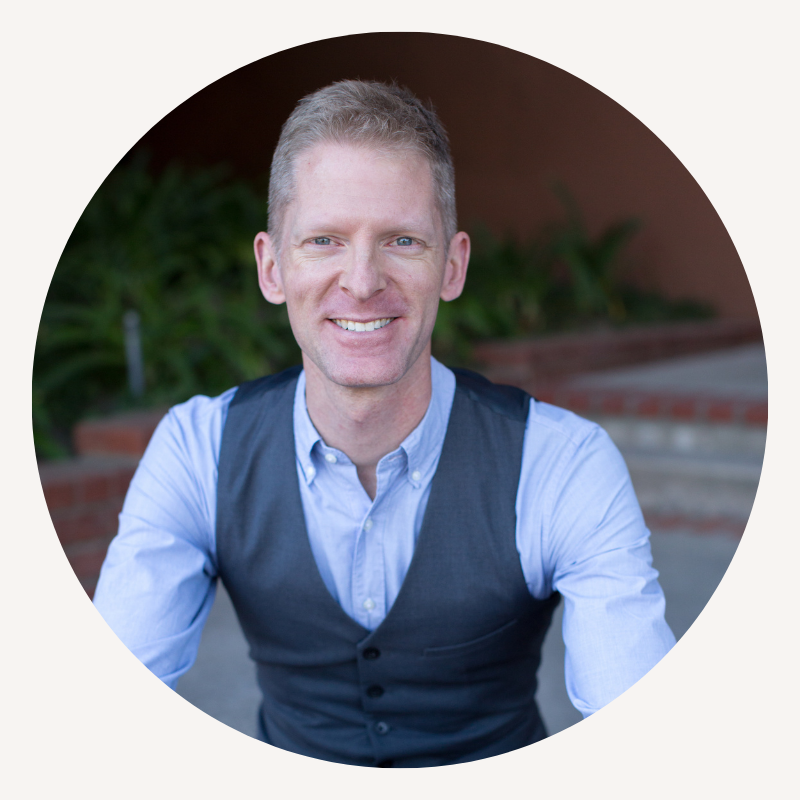A Tale of Two Selves: Leading a Double Life
By all appearances, Gary (who's not real, by the way) is a successful businessman, a loving father and husband, even an elder at his church. He is respected in his social circles, esteemed in his business, and loved by his family.
Behind the facade, though, Gary leads a very different life. He watches porn, though far less than he used to as his interest in getting massages with happy endings at local parlors has taken off. He slips in visits with prostitutes at hotels in the area between meetings, skimming money from his business to hide it from his wife. He covers his tracks, making sure that his secret life stays a secret. Gary comes to see me because he’s afraid he may have an STD and he's not sure what to do. More than that, he confides he's getting tired of the effort required to maintain his double life.
Gary is typical of the clients that I see that are struggling sexual behaviors that have gotten out of hand. And, like many of my clients, he wonders how things got this far, why keeps doing what he does, and how he could live two such drastically different lives.
The answer? In a word, shame.
What Is Shame?
Shame is the heavy, burdensome feeling that one is deeply and profoundly unlovable, unworthy, not good enough, or inadequate.
Shame tells you that you're alone, that no one is as bad or as fucked up as you are, no matter how much you long to be connected with others. That's the thing about shame. When we feel shame, we feel lost to others, disconnected from them as though we were on opposite sides of an uncrossable chasm.
More than that, as Judith Jordan** writes, with shame "there is a loss of the sense of empathic possibility, others are not experienced as empathic, and the capacity for self-empathy is lost." Well, shit, if isn't that spot on. That means that not only is it impossible to have compassion for yourself when you feel shame, you're damn sure that others think you're a POS as much as you do. That's why when we're in our deepest shame, it's hard to "take in" anything compassionate, loving, supportive, or empathetic that others may tell us.
Where Shame Comes From
You guessed it—shame takes hold when a person is very young.
Shame can come in various forms, and can be as simple as a parent rebuffing and shaming a child when she expresses her needs. The child learns that certain feelings or parts of himself aren't acceptable, and he learns to disconnect from those feelings in order to maintain ties with his caregiver.
Things get a little more complex when we think about how a double life is born. When there's a mismatch between a young child and her parent, sometimes the parent is really present as he needs connection himself. At other times, he's totally oblivious. The child, desperate to stay connected, learns to turn off her spontaneous needs as the parent isn't tuning in. Instead, she learns to pay attention to her caregiver's cues, his signals that he wants connection. As Patricia Young*** explains, "Well-being depends entirely on someone else's response. When the response is good, the child feels important and valuable; when not so good, the child feels worthless and low."
Over time, the child learns to get love and some semblance of connection by adherence to these cues, which eventually take the form of anything from a perfect GPA to maintaining rigid control over one's weight to winning little league games.
In adulthood, the contexts may change now that little league is far behind, but these rules, having been internalized, find different applications in work, business, relationships, or other areas of life.
Leading a Double Life: A Tale about Shame
Gary is a fictional composite of my experiences in supporting those who struggle with problematic sexual behaviors, but his story is all too common.
He carefully maintains separation between his two lives, his shadow safely quarantined behind walls of shame most of the time. The kind of split existence that is characteristic of a double life is all about keeping a dark side sequestered, tucked away out of view.
Many who live this life become accommodating people-pleasers, having learned in childhood that love and connection only comes if they meet others' needs and forget their own. Those who struggle with problematic sexual behaviors often have learned to engage in these behaviors in order to find a way to meet the needs that no one else seems to care about. A prostitute may not really love Gary, but for him, it's the next best thing.
Healing Shame
So what's to be done to heal the shame that binds Gary? The answer to this question is worth not just one but many more blog posts in itself, and I'm well over 850 words already here, so it's time to wrap this up.
The work of the therapist and the client is to find a way to call home those parts of the self that have been long forgotten. To gently call them out of hiding by learning to recognize and bear the shame that has exiled them.
When that shame that has been unbearable is brought into the light in the presence of an understanding, empathic other, shame dies.
As Brene Brown is fond of saying, shame can't survive vulnerability.
It's not easy work and requires us to be very patient and loving with ourselves, but it's the only way to become whole again.
**J. Jordan, "Relational Development: Therapeutic Implications of Empathy and Shame," in Women's Growth in Diversity: More Writings from the Stone, ed. Judith Jordan (New York: Guilford, 1997), 147, as quoted in P. Young, Understanding and Treating Chronic Shame (New York: Routledge, 2015), 18.***P. Young, Understanding and Treating Chronic Shame (New York: Routledge, 2015), 7.
About the Author
Jeremy Mast is a licensed marriage and family therapist, a Certified Sex Addiction Therapist, and the founder and director of the Center for Integrative Change. He is passionate about helping those struggling with substance use and problematic sexual behaviors and their loved ones find lasting healing. In his spare time, he enjoys reading, rock climbing, health and fitness, and trying out new recipes while cooking at home.


